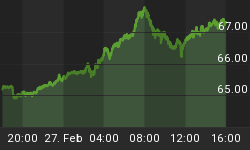The Winds of Change
EXECUTIVE SUMMARY
The report relies heavily on the conceptual framework of a U.S economy in a balance sheet recession. Our main thesis rests on the belief that until U.S households repair their balance sheets and generate real income growth, they are in no position to drive a self-sustaining economic recovery. Monetary policy (including quantitative easing (QE)) produces limited results in generating real economic growth--- since the demand for credit and the lack of qualified borrowers remain the issue not the supply of funds. Instead, expansive fiscal policy, through increased government budget deficits, exists as the primary lever to raise economic activity, transfer real financial assets to the private sector, and ease the pain of the deleveraging cycle.
To provide the foundation for our views on how U.S fiscal and monetary authorities stabilized the U.S economy post the housing crash, set in motion a financial markets recovery starting in March 2009, and now risks sending us into a double-dip recession by pulling the wrong policy lever, we attempt to answer the following questions in the work that follows.
- What causes a balance sheet recession?
- Are there lessons to learn from the Japanese experience of the 1990's?
- What are the cures for this disease?
- Can fiscal authorities make matters worse?















